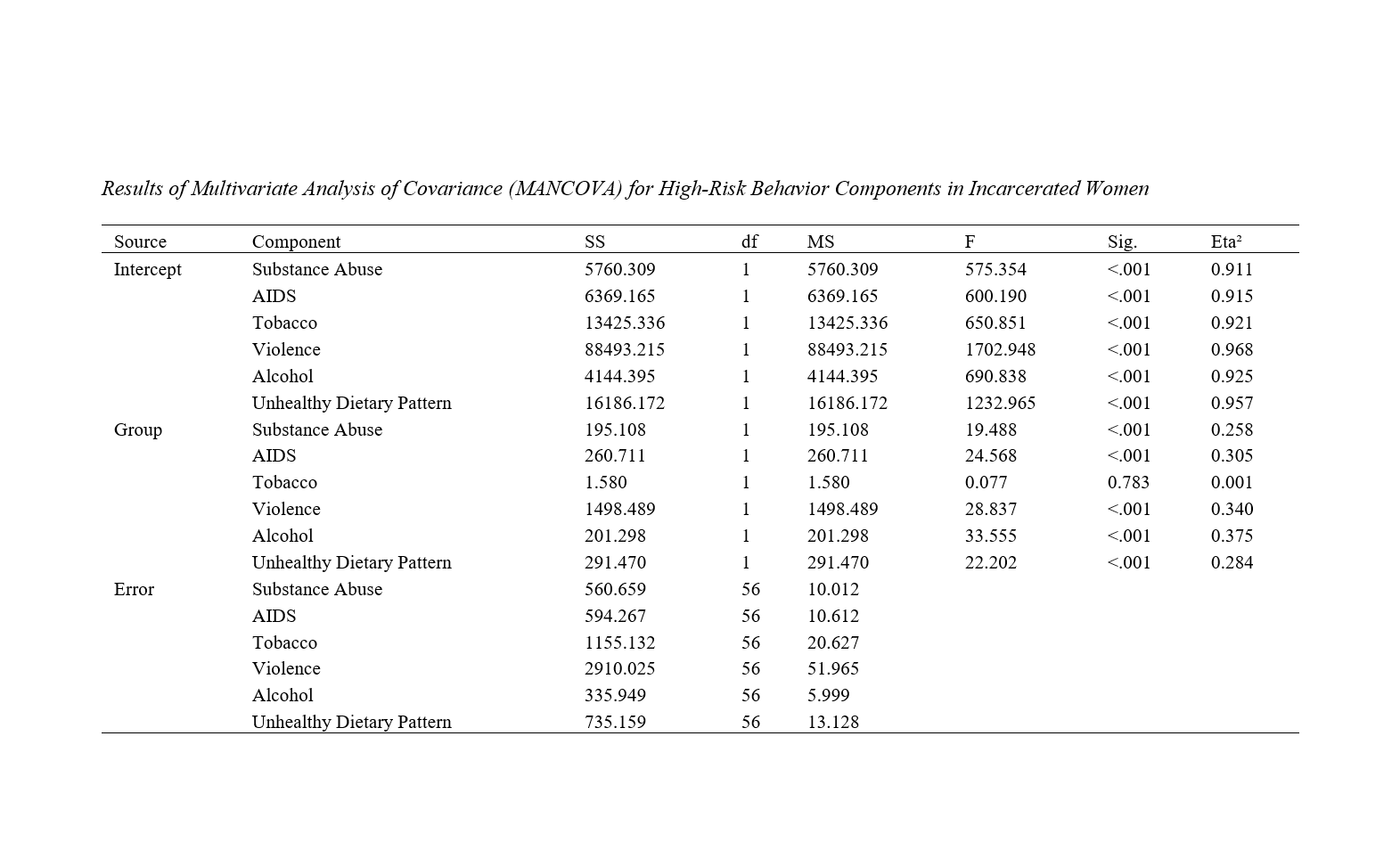The Impact of Life Skills Training on Distress Tolerance, Psychological Adaptation, and High-Risk Behaviors in Incarcerated Women
Keywords:
Life skills training, distress tolerance, psychological adaptation, high-risk behaviorsAbstract
Objective: The study aimed to evaluate the impact of life skills training on distress tolerance, psychological adaptation, and high-risk behaviors among incarcerated women.
Methods: This was an applied, experimental study. The study population consisted of incarcerated women in Kerman Central Prison in 2022. Sixty participants exhibiting high-risk behaviors were randomly assigned into an experimental group (30 women) and a control group (30 women). The experimental group received the World Health Organization's (WHO, 1998) ten-session life skills training program, each lasting 90 minutes, while the control group was placed on a waiting list. Both groups were assessed using the Simons and Gaher Distress Tolerance Scale (2005), the Derogatis Psychological Adaptation Scale (1986), and the Rajaee and Shafiei High-Risk Behavior Questionnaire (2011) before and after the intervention. Data were analyzed using multivariate analysis of covariance with SPSS software.
Findings: Results indicated that life skills training significantly impacted distress tolerance, psychological adaptation, and high-risk behaviors in incarcerated women (p < .01).
Conclusion: Life skills training can be effectively utilized to enhance distress tolerance and psychological adaptation, and to reduce high-risk behaviors.
Downloads

Downloads
Additional Files
Published
Issue
Section
License

This work is licensed under a Creative Commons Attribution-NonCommercial 4.0 International License.




















